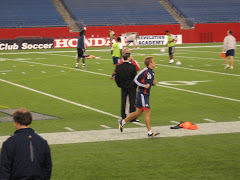"Citizenship in School: Reconceptualizing Down Syndrome" by Christopher Kliewer
This article is about…
Downs syndrome
Community
Citizenship
Disabilities
Democracy
Equality
Individuality
Creativity
Unique
Opportunity
Author’s Argument:
Christopher Kliewer argues that through citizenship people with Down syndrome can be recognized as creative and thinking individuals that can add something unique to the learning community.
“Acknowledge students with Down syndrome as thoughtful, creative, and interesting learners with personal identities that distinguish them from all other people suggests an individual value that enhances any context containing the child.” pg 208
“They’re different in terms of what their bodies are like, how they best communicate, what they’re like socially, their interests… it would be hard to say ‘this is how you should teach kids with Down syndrome.’ They are not at all alike.” pg 207
“To eliminate a single person through any form of banishment, no matter how benevolent the logic, reduces the web and makes the community a less democratic and less rich place.” pg 212
When I was started to read this article I didn’t know what to expect. I knew that I would be interested because I am a special education major, but I didn’t know what point they were trying to make when I began to read. But as I continued all I could think of was tracking and how much this article relates to Jeannie Oakes’s article that we read a couple of weeks ago. I was amazed how quickly I made that connection and to be completely honest, I was very proud of myself. What I think Kliewer is arguing is that we need have children with Down syndrome in our classrooms because we can not exclude them from their education just because we think that they cannot learn the material. Just because they cannot express themselves as we can in everyway, they have different ways of expression and they can bring a unique way of learning to the classroom.
I have wanted to be a special education teacher since I can remember and I have volunteered and observed in many classrooms. I have never thought about having students with Down syndrome in a mainstream classroom. I know that people with Down syndrome are loving and friendly and they would be great for a mainstream classroom, but it is the reception of the other students I would be worried about. Some people don’t feel comfortable around people with disabilities, but if the interaction happened at an early age I think everyone could benefit by the collaboration. I have never thought about this before and I think if it is done properly could really help everyone involved.
Subscribe to:
Post Comments (Atom)




1 comment:
Love this post, Stephanie. You do a great job making the connection to Oakes. I see that link, too! You should be proud of yourself for learning in such an integrated way!
LB :)
Post a Comment